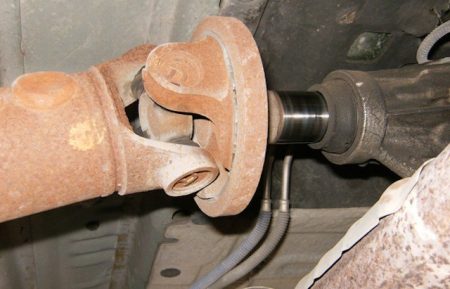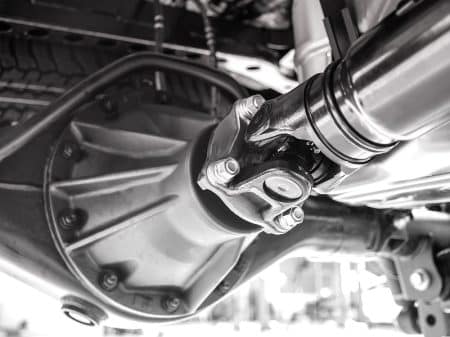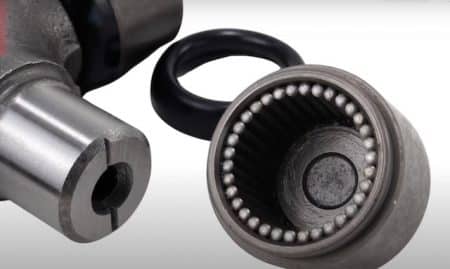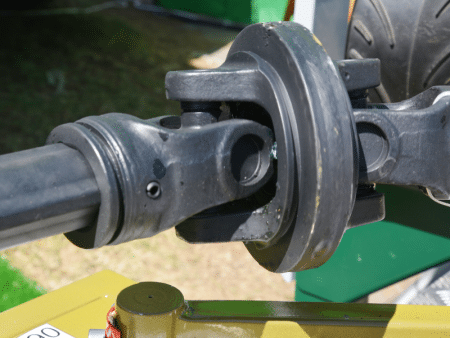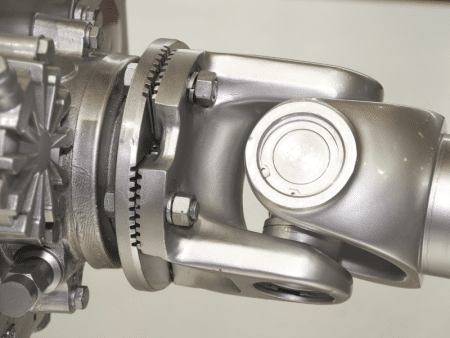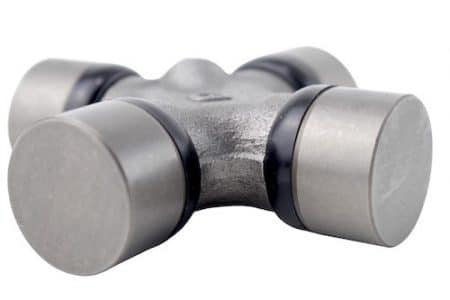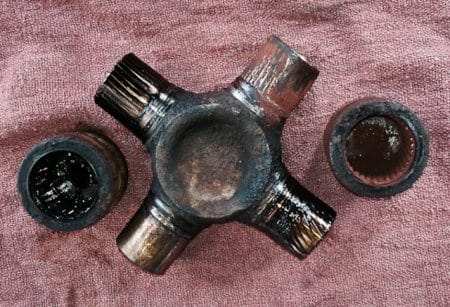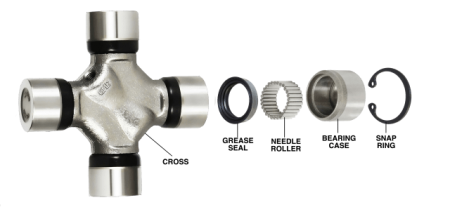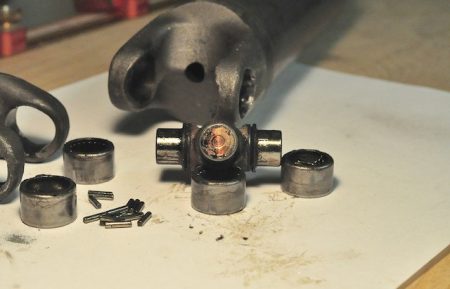Posts Tagged ‘Universal Joint’
Why Are Two Universal Joints Required Whenever I Do A U-Joint Replacement?
Are you replacing a universal joint on your truck, SUV, or fleet vehicle anytime soon?It’s a good idea to get two replacement u-joints instead of one. It’s because you need to replace your u-joints in pairs, even if one of your u-joints has failed and the other one still looks fine. When one of your…
Read MoreWhat’s That Noise? Do Bad U-Joints Squeak?
When a u-joint goes bad, it starts making noise. The most common noises bad u-joints make are:
Read MoreShould New U-Joints Be Tight (Or Stiff)?
Before installing a replacement part, you always want to make sure that the part is working right. When you’re dealing with universal joints, you may be concerned with how stiff they feel when moved by hand.
Read MoreWhat Happens When A U-Joint Fails?
U-joint failure is a serious issue. When a u-joint on your vehicle fails, you could be left stranded on the side of the road. U-joint failure happens for a few different reasons:
Read MoreWhat Causes U-Joint Failure?
When a u-joint fails, it can cause a vehicle to lose control and leave the driver stranded. There are potentially many other undesirable consequences. This is why understanding what causes u-joint failure is important for safe driving.
Read MoreWhen Should U-Joints Be Replaced?
Under normal circumstances, u-joints last a long time. Some even last the lifetime of the vehicle. But sometimes a u-joint can fail unexpectedly. When that happens, you have to replace it ASAP. Neglecting to replace a failed u-joint will likely result in serious issues such as:
Read MoreShould You Grease New U-Joints? What About Older U-Joints?
If you have u-joints in your vehicle, you may be wondering if you need to grease them every now and then. It depends on the type of u-joints your vehicle has. There are two kinds of u-joints: Permanently lubricated u-joints (with no grease zerk) Greaseable (with a grease zerk)
Read MoreWhy Replace U-Joints?
Universal joints (also known as U-joints) are critical parts of the driveshaft. U-joints are usually fitted to the following vehicles:
Read MoreThe High Cost Of Ignoring U-Joints
A u-joint may be a small part, but it plays an important role in the smooth operation of your drivetrain. U-joints should last the life of the vehicle, but sometimes that’s not the case. U-joints can go bad over time.
Read MoreHow Often Should U-Joints Be Replaced?
U-joints should last forever – or at least the life of the vehicle. “Should” is the operative word here. U-joints aren’t supposed to wear out, but it happens. Also, u-joints can break.
Read More
